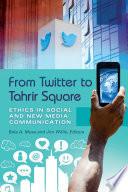Wages, Workers, and the Political Economy of the American West
A wage is more than a simple fee in exchange for labor, argues Geoff Mann. Beyond being a quantitative reflection of productivity or bargaining power, a wage is a political arena in which working people's identity, culture, and politics are negotiated and developed. In Our Daily Bread, Mann examines struggles over wages to reveal ways in which the wage becomes a critical component in the making of social hierarchies of race, gender, and citizenship. Combining a fresh analysis of radical political economy with a critical assessment of the role of white men in North American labor politics, Mann addresses the issue of class politics and places the problem of "interests" squarely at the center of political economy. Rejecting the idea that interests are self-evident or unproblematic, Mann argues that workers' interests, and thus wage politics, are the product of the ongoing effort by wage workers to focus on quality in a socioeconomic system that relentlessly quantifies. Taking three wage disputes in the natural resources industry as his case studies, Mann demonstrates that wage negotiation is not simply emblematic of economic conflict over the distribution of income but also represents critical contests in the cultural politics of identity under capitalism.
The entry from which these words are drawn (#77, Auction) is far more subtle
than I can register here. It renders the ironic combination of anger ... (This is
Jameson's own rendering of a passage worded differently in the only, and much
maligned, English translation of Adorno's Negative Dialectics, 212.) For a brilliant
and fascinating ... For a compelling attempt to begin such a conversation, see
Romm's “Coincidental Order of Environmental Injustice.” 11. Marx, Capital, 1:769.
12. Hall ...








